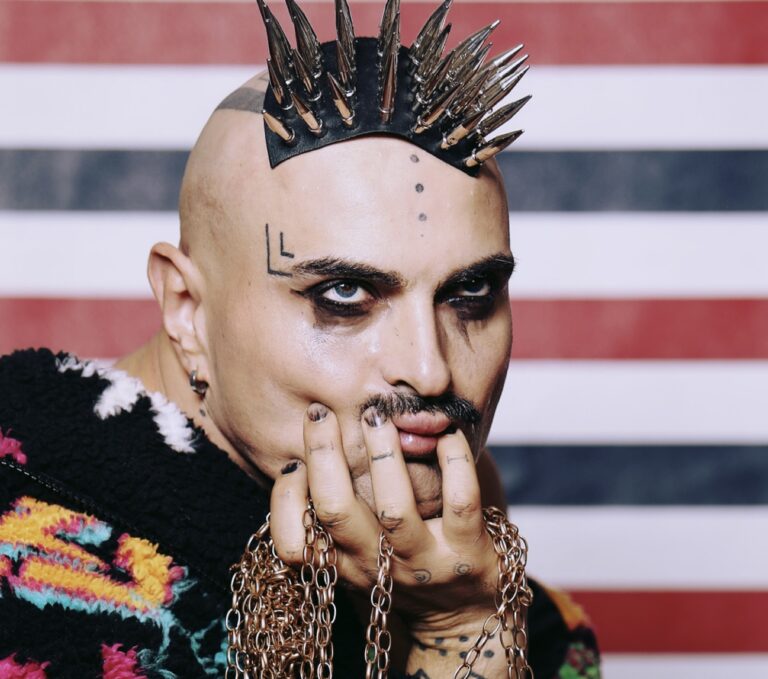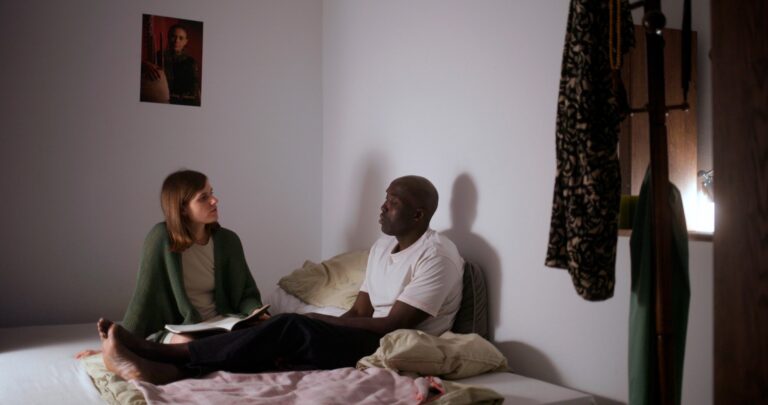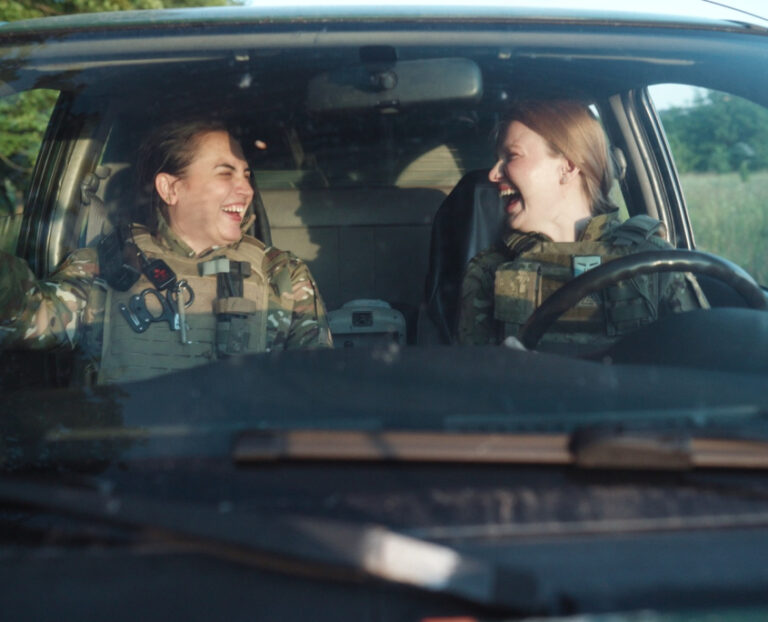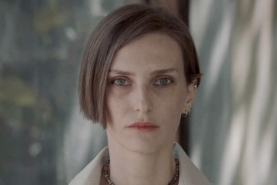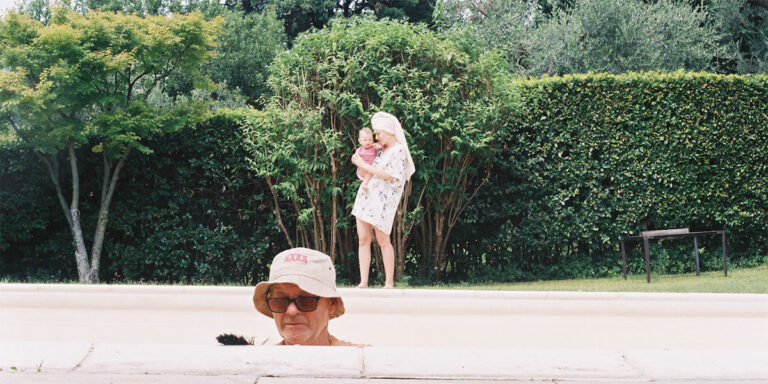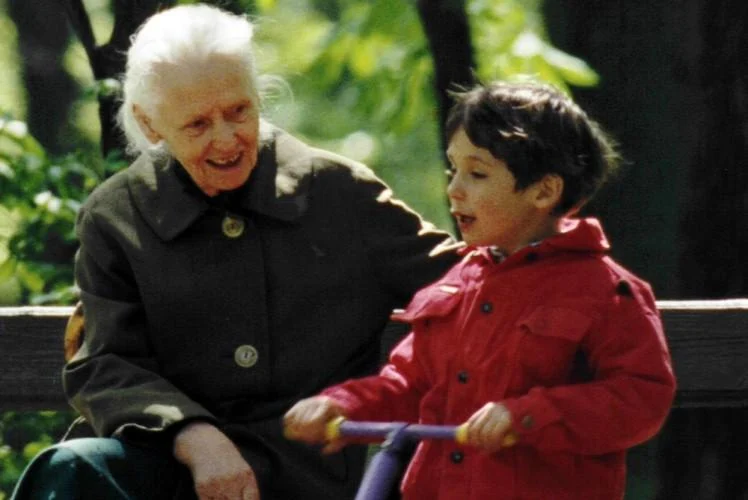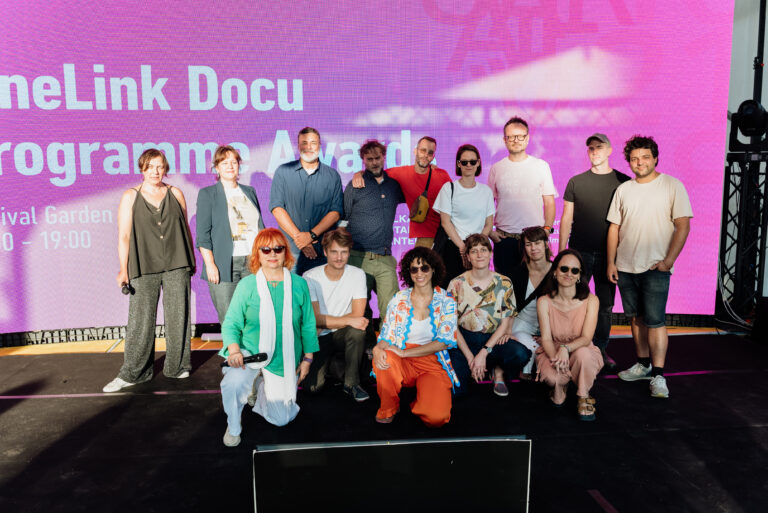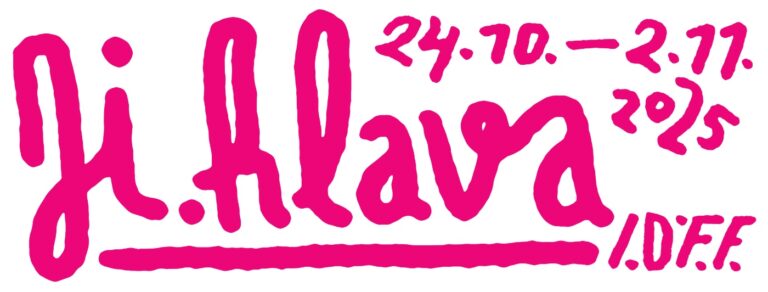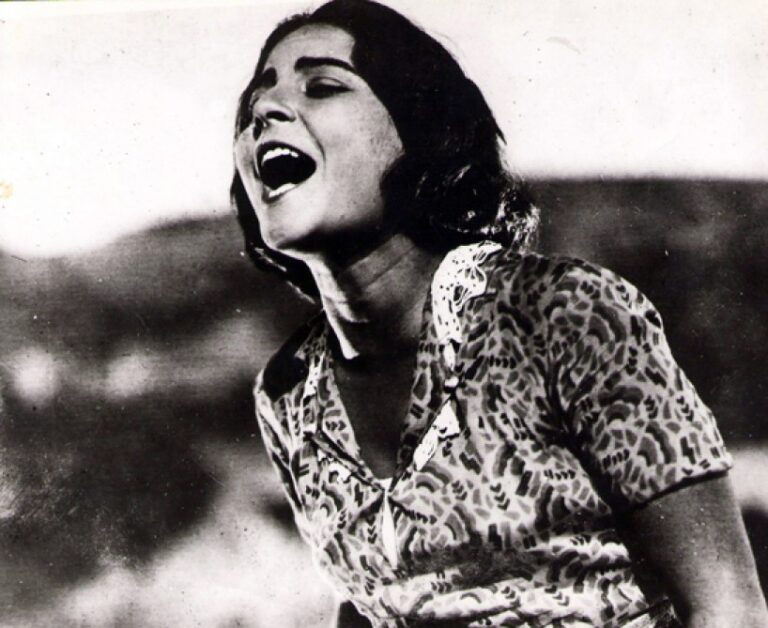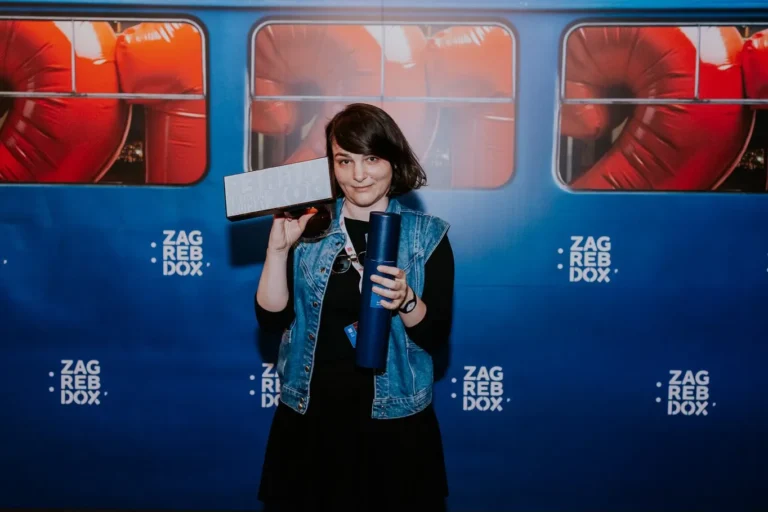Programmed for the Sarajevo FF in the documentary competition.
The film won main award in the regional competition of this year’s ZagrebDox, the photo shows the director with her Big Stamp as the festival calls its award.
No need for me to give a brief of the content as ZagrebDox has already done so:
“This film was made in memory of the author’s father, who devoted much of his life to recording the world around him. Discovering a multitude of unmarked, unedited, and unseen tapes belonging to her father, the author begins a personal and cinematic odyssey to unveil the real man behind the recordings. By viewing videos of the moments she didn’t witness, reflecting on her childhood and her family’s relationship with the camera — her father’s tool, diary method, and preferred means of expression — the author gains insight into his diverse roles across various times and corners of the world.”
Danijel “Danko” Dozet, the father, was with a camera in his hand al the time and left – passing away at the age of 55 – tapes that could fill a whole room, it seems; home videos shot by the father, very very often with the daughter – and other family members – objecting to be filmed. He left a mosaic of images that I wish to rearrange – and she does ending up, as the father, to be constantly filming herself, first with the camera that the father gave her when she left elementary school. He made her a filmmaker…
Dalija, the director, is watching and commenting on what she has chosen from the tapes – who was he, my father and how am I looking at my childhood and my youth, did I learn something from him, from his “video lessons”. Danko was, she says, a trouble-maker in the sense that he wanted something to happen in front of the camera, in the family, and there are some fine moments, where father and daughter are together, caught on camera.
When he was not so popular filming the household any longer, he started filming in the streets and abroad and you see that he has the curiosity of a documentarian – as she, Dalija, has, as well bringing in the playfulness to a film like this must have to convince an audience that it should be interested; the crossing from private to personal. On top of that there are in the beginning and at the end some beautiful letters conveyed on the screen. From father to daughter.
Personal… yes, the film made me think of my father, who died when he was 59, also a young man, an actor who did not leave loads of VHS-tapes… alas, there was so much I did not get to talk with him about.



